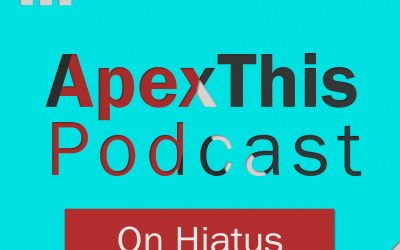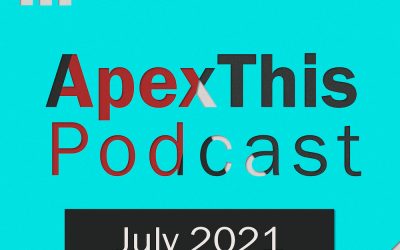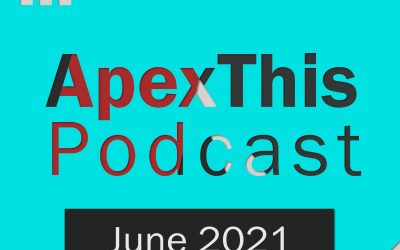Podcast: Play in new window | Download
Subscribe: Apple Podcasts | Google Podcasts | RSS
Blogscript
Pain moved my hand across the pages penning tales of love and happiness. First, they were poems of unfiltered thoughts that gave way to song as I crafted lyrics to sing my sorrows and my woes. Those songs became longer losing their rhymes and tenor forming narrative essays where I attempted to make sense of the world around me. The words scrawled about fragile papers were digitized into short stories giving way to my passions, wants, and needs.
My writing gave birth to my thoughts, added rhythm to my words, and painted pictures of my world.
Yet, I did not call myself a writer.
Coming up—writing
<music intro>
I wrote those words not so long ago when I made the decision to finally call myself a writer. We are ALL writers you say, and I agree. Though there can be some that revere the field and the works of many that they would not dare put themselves in such a category. I was one of them.
I wrote things. But I wasn’t a writer.
My, have times changed. I acknowledged what I did. What I enjoyed. And I realized that I wasn’t too old to follow a dream.
And now I write.
But what about self-publishing? What about this journey I’ve embarked on in producing works from things I write?
These past few months, as I’ve refocused my eye on ApexThis, I’ve had to get back to the thing that will provide the content: writing.
In my Project Dollar Update episode earlier this year, or late last year, it all bleeds together now, I gave a bit of insight into my writing on that project and my challenges. These past few months have eliminated some of the challenges I faced and have strengthened me.
Where I would once go weeks and months without writing anything creative, I now go days.
Where I would hit “writers block” and get stuck on a scene, I flow.
Where I would write by the seat of my pants, I now outline.
The idea of self-publishing has made me see the professional side of writing. Before I would just write the things I wanted to write, edit whenever I wanted to, and then release while I’m in a mode of euphoria. Now, I see the strategy, the planning, the discipline. Writing moves from a creative form to a business. For any serious endeavor, you must learn the craft, know your output, work with great editors, cultivate a readership and write consistently.
Isn’t this with anything though? As I dive further, I can see how many lose their love of the craft, or burn themselves out to survive. The path ahead is treacherous. But it is one filled with lots of learning.
I, originally, was going to bore you with my drama in writing but we all have it don’t we? The short-end of it, is that writing has helped me discover things about my writing, fix things about my writing, and practice more writing. And I feel that I have improved and with studious practice, I can improve even more and produce quality words.
Outside of writing, it is imperative to read. And thus, here are a few books that I’ve read as I jumped back into this form of creative output that has aided me:
- Self-Editing for Fiction Writers by Renni Browne, Dave King I thought this was a fantastic read where the authors break down various text and revise them and or explain what the author was attempting to do and how to make it work. There are many, structural things to learn when editing as I’ve often relied on “feeling”. That is still there but there is some order that is needed and this book sets you on that path. Though, don’t think this would save you from having to send your work out to an editor for review.
- How to write short stories and use them to further your writing career by James Scott Bell This book made me ponder living in the short story land for self publishing as I further learn the craft of writing and telling stories in this format. I’ve even started a series of personal challenges as proposed in this book. If you like the short story form, this is worth reading.
- Super Structure: The key to unleashing the power of story by James Scott Bell Seriously, how can you go without any James Scott Bell books? I picked this up as I was craving a way to write better and shed my pantsing style of writing. For those unfamiliar, this is the act of flying by the seat of your pants in writing. No outlines, no thought. You just sit and write whatever comes to mind. As you heard in my post Camp NaNo update, this wreaked havoc for me in writing a novella.
- 5,000 Words per hour; write faster, writer smarter by Chris Fox This was recommended to me and is a short read. This was not very useful to me, per se, but it is extremely useful to those unfamiliar with productivity systems. Many of the things the writer puts forth, I already practice, but they could be a boon to someone else.
- Take off your pants: Outline your books for faster, better writing by Libbie Hawker THIS book I stumbled upon when looking for outlining books after finishing Super Structure. And yes, I love reading books on writing so don’t judge me for looking for another outline book. Thankfully, I did. It was the words of Libbie that made outlining click with me. The way she explained it and provided examples just flowed with me so much that I have been using her methods since. And I’ve been successful at it. Her opening example was so apt. In having a story outlined in full, you can jump immediately into writing it, even with deadlines looming. And THIS is what I need to self publish.
This wasn’t much new, noteworthy, or mindblowing, but writing is such a vast topic and the process differs for everyone. The crux is that you must write and read to get better. Not necessarily books on craft as I am addicted to, but many books in fiction, across genre’s, so that you can learn how the author crafts a sentence, paragraph, a story. This is true for non-fiction as well.
And if you are entering into publishing, as I am, then knowing your writing, your habits, and workflow will aid you in being productive, will aid you in faster revisions, and better outlining, to produce content for a growing audience. Or at least, that is what I am learning.
And that’s it for this episode. Thank you for joining me for a listen. As always, I don’t have any answers and the advice is really for me. But if you can share in it, then all the better.
What’s Next?
In the next episode, we will be doing our November Monthly Review.
Until next time



0 Comments